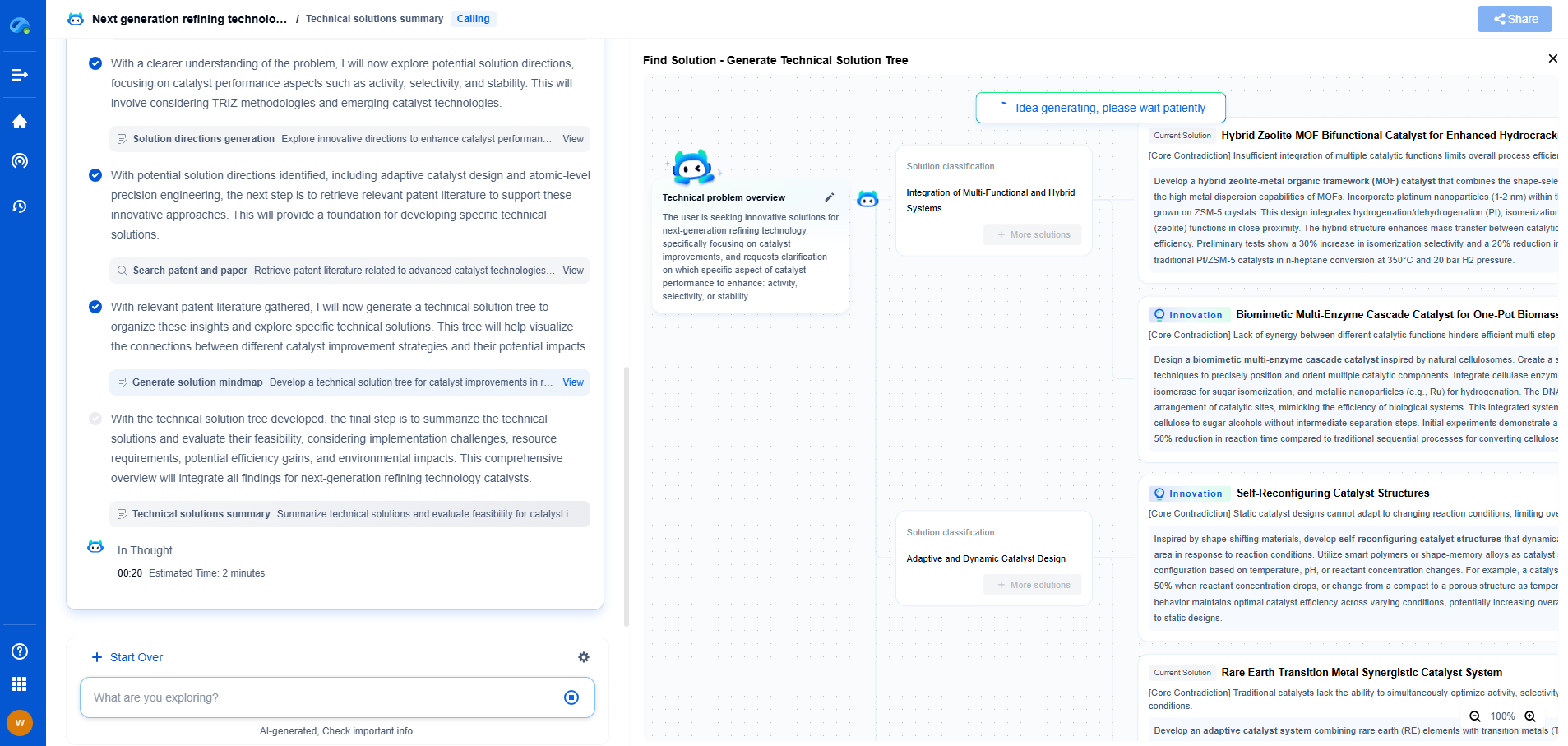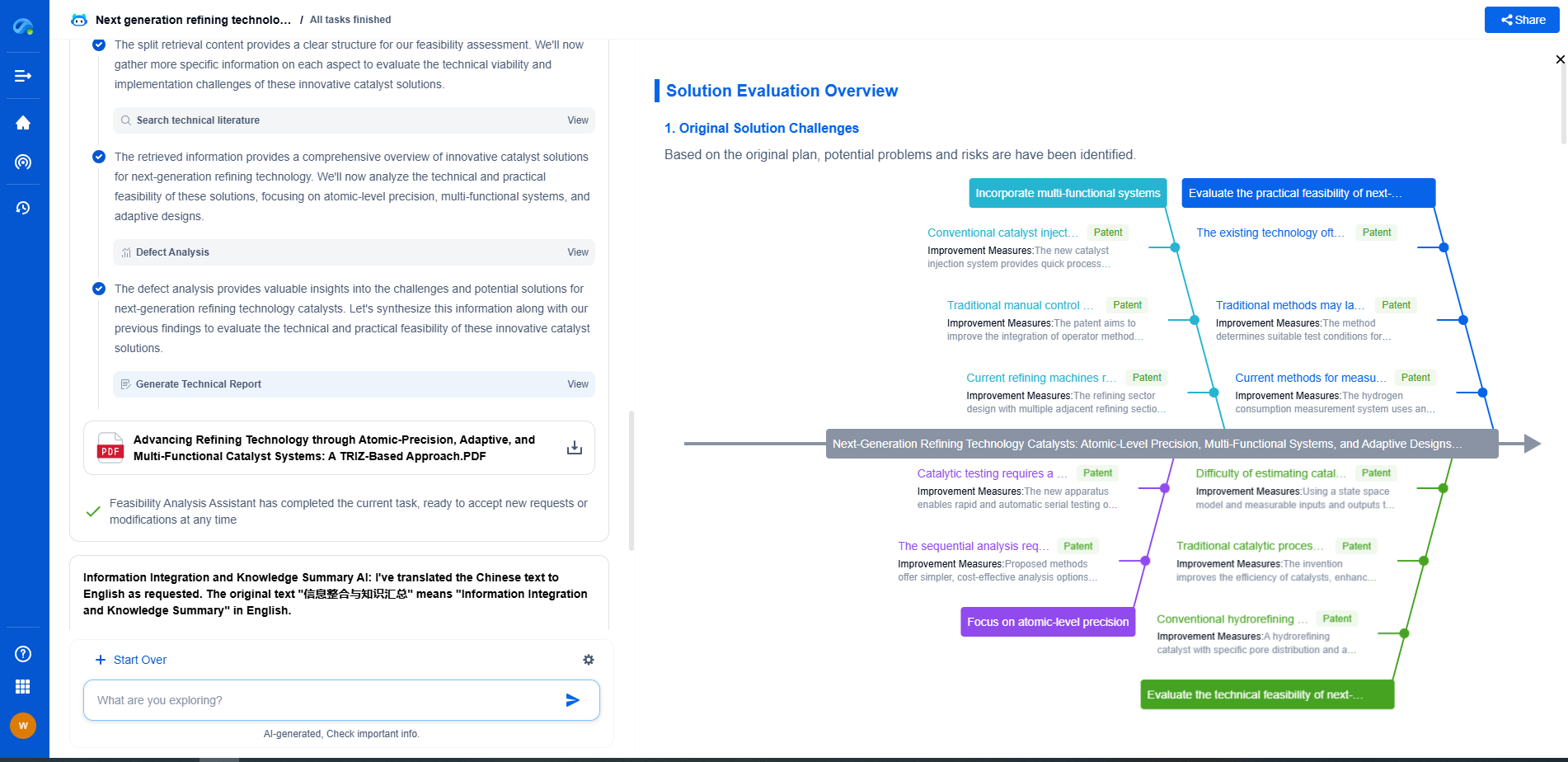What Is CNC Machining in Wind Turbine Component Production?
JUN 26, 2025 |
Understanding CNC Machining
CNC (Computer Numerical Control) machining is a versatile manufacturing process that employs computerized controls to operate and manipulate machine tools. This automated approach allows for high precision and consistency, essential for producing complex parts used in various industries, including wind energy. By programming machines to follow specific sequences, manufacturers can produce intricate components with remarkable accuracy, reducing human error and increasing efficiency.
Importance of CNC Machining in Wind Turbine Production
The production of wind turbine components demands precision, durability, and reliability. CNC machining offers the perfect solution by providing the ability to create parts with tight tolerances and smooth finishes. In wind turbines, key components such as blades, hubs, and gearboxes require meticulous manufacturing processes to ensure optimal performance and longevity. CNC machining is pivotal in meeting these stringent requirements, enabling manufacturers to produce high-quality components that withstand the harsh conditions and mechanical stresses faced by wind turbines.
Key Components Produced Using CNC Machining
1. Wind Turbine Blades
Wind turbine blades are among the most critical components, as they capture wind energy and convert it into rotational force. CNC machining allows for the precise shaping of blade molds and fixtures, ensuring aerodynamic efficiency and balance. The accuracy and repeatability of CNC machines also facilitate the production of large blades with complex geometries, essential for maximizing energy capture.
2. Gearboxes
Gearboxes in wind turbines are critical for transferring energy from the blades to the generator. CNC machining is instrumental in producing gears and housings with high precision, ensuring smooth operation and minimal friction losses. The ability to maintain tight tolerances and surface finishes helps in reducing wear and extending the gearbox's operational life.
3. Hubs and Nacelles
The hub connects the blades to the rotor, while the nacelle houses critical components like the gearbox and generator. CNC machining allows for the production of robust and accurately aligned hubs and nacelle components. This precision is crucial in maintaining the structural integrity and alignment of the turbine, reducing vibration and enhancing overall performance.
Advantages of CNC Machining in the Wind Energy Sector
1. Precision and Accuracy
CNC machining provides unparalleled precision, allowing for the production of components with tight tolerances. This accuracy ensures that parts fit perfectly within the assembly, reducing the need for adjustments and minimizing downtime during maintenance.
2. Efficiency and Cost-Effectiveness
By automating the manufacturing process, CNC machining reduces the time and labor required to produce components. This efficiency translates into cost savings, making it an attractive option for wind turbine manufacturers looking to optimize production without compromising quality.
3. Flexibility and Customization
CNC machines can be easily reprogrammed to produce different parts, offering flexibility and adaptability in manufacturing. This capability is particularly beneficial in the wind energy sector, where custom components may be required to meet specific site conditions or performance criteria.
4. Enhanced Quality Control
CNC machining facilitates rigorous quality control by ensuring consistent production standards. The integration of advanced software and monitoring systems allows for real-time inspection and adjustments, reducing the risk of defects and enhancing overall product quality.
Conclusion
CNC machining has become an indispensable technology in the production of wind turbine components. Its ability to deliver precision, efficiency, and cost-effectiveness makes it a vital part of the manufacturing process. As the wind energy sector continues to expand and innovate, CNC machining will undoubtedly play a crucial role in developing and producing the complex and reliable components necessary for advancing sustainable energy solutions.
Empower Your Wind Power Innovation with AI
In the fast-evolving landscape of wind turbine technology—where aerodynamic optimization, generator efficiency, and structural innovation are critical—staying ahead requires more than just expertise. It requires intelligent tools that accelerate R&D and protect your competitive edge.
Patsnap Eureka is your AI-powered research assistant, designed specifically for innovators like you working at the forefront of Wind Motors. Whether you're analyzing blade design trends, exploring novel gearbox architectures, or navigating complex global patent landscapes, Eureka streamlines the entire process with precision and speed.
👉 Experience how Patsnap Eureka can revolutionize your R&D and IP strategy. Request a demo today and power up your next breakthrough.
- R&D
- Intellectual Property
- Life Sciences
- Materials
- Tech Scout
- Unparalleled Data Quality
- Higher Quality Content
- 60% Fewer Hallucinations
Browse by: Latest US Patents, China's latest patents, Technical Efficacy Thesaurus, Application Domain, Technology Topic, Popular Technical Reports.
© 2025 PatSnap. All rights reserved.Legal|Privacy policy|Modern Slavery Act Transparency Statement|Sitemap|About US| Contact US: help@patsnap.com

